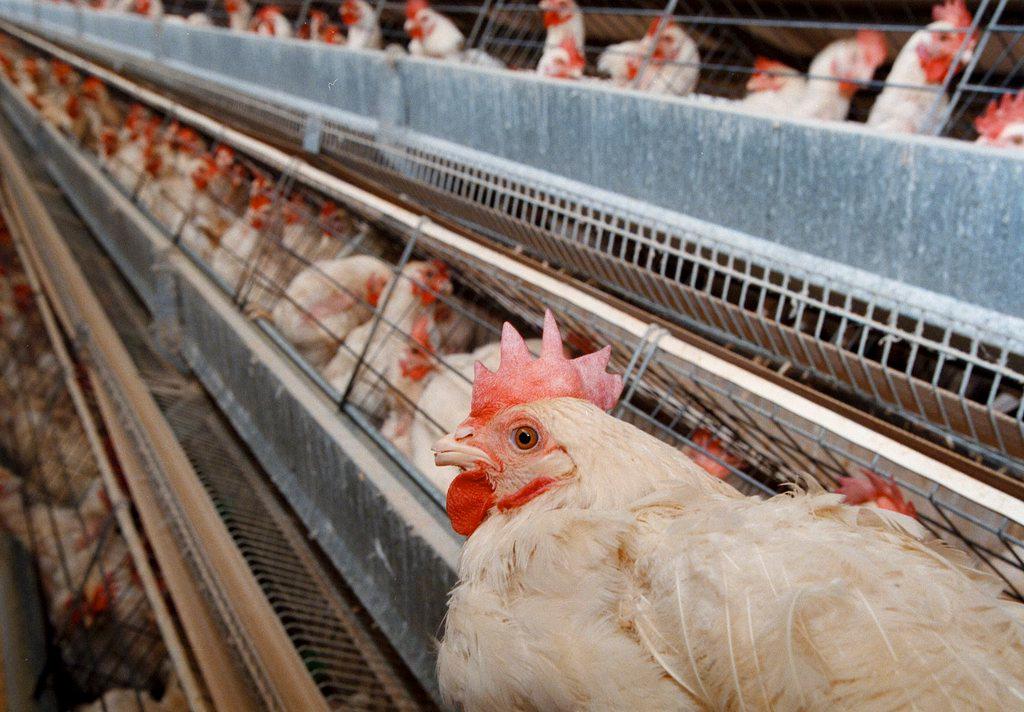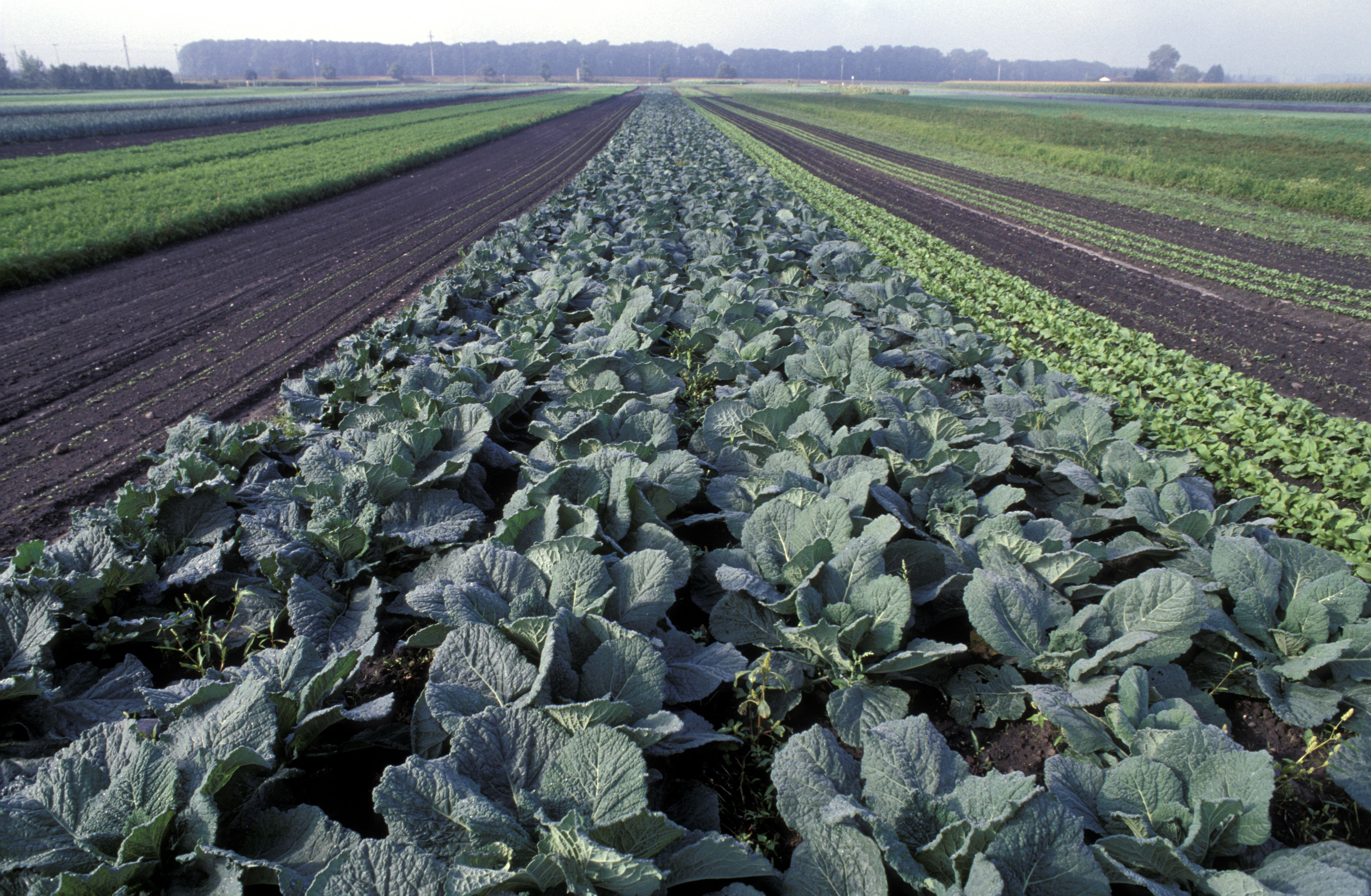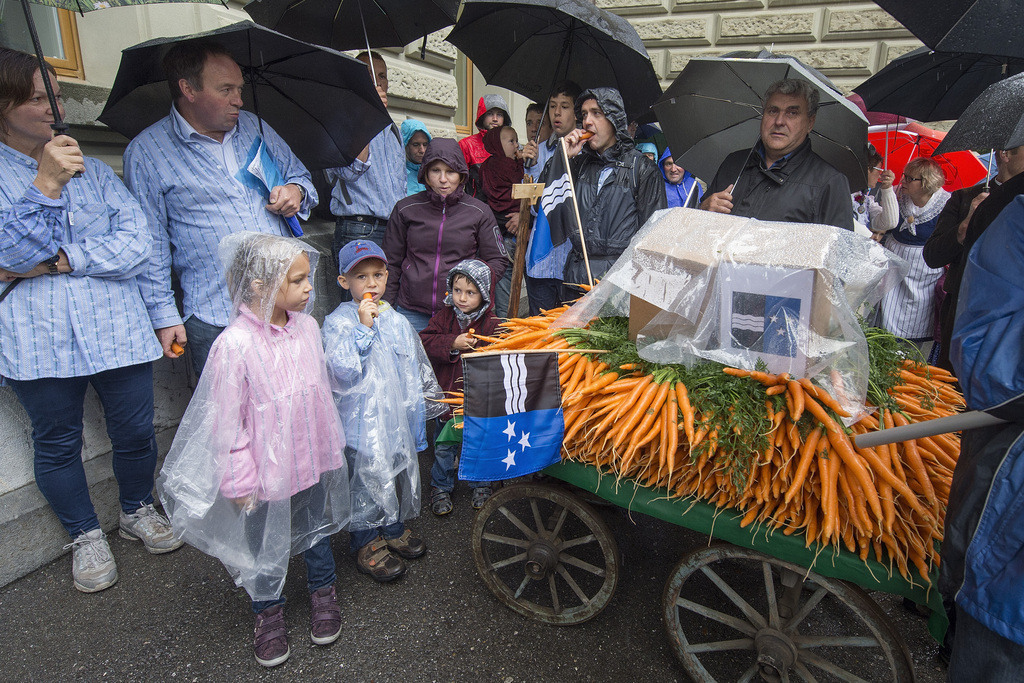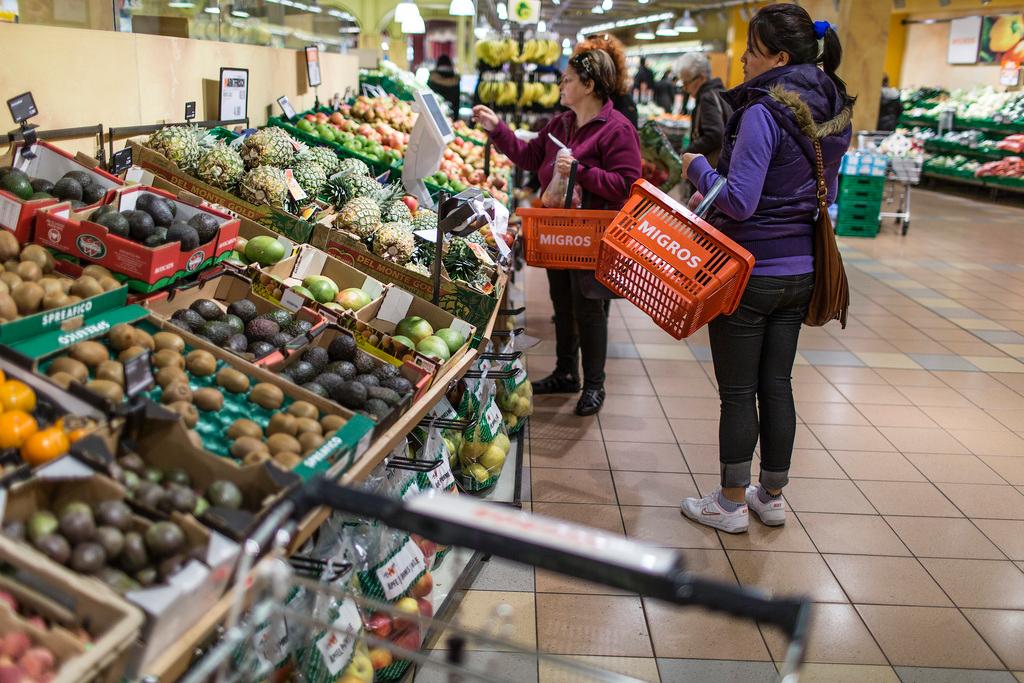‘Fair food’ initiative to be put to the vote

Switzerland’s Green Party has provided the government with more than the 100,000 signatures needed to call for a nationwide vote on food imports.
The party submitted 105,631 signatures to the Federal Chancellery in Bern on Thursday in support of an initiative demanding that food imports should be socially equitable and environmentally responsible.
“It’s the only concrete response to the new free trade agreement with the United States,” the Green Party said in a statement, referring to the 12-nation Pacific trade pact known as Trans-Pacific Partnership, which could have major implications for world trade and European Union trade talks with Washington.
Twelve Pacific countries including Australia, Canada, Japan, the US and Vietnam signed the trade agreement, known as TPP, in October, after five years of negotiations. It covers about 40 percent of the world economy, but still faces a tough ratification battle in the US Congress.
Supporters say it would help companies tap into the growing ranks of Asian consumers demanding high quality, safe food products.
At the same time, the TPP is considered a precursor to a potential similar deal between the EU and the US called the Transatlantic Trade and Investment Partnership, or TTIP. Though Switzerland is not part of the EU, much of the food it consumes comes from other European countries.
Swiss standards
The Green Party, in collaboration with development aid organisations, consumer and and animal rights groups, says it wants food imported from other countries to be subjected to same standards that are imposed on Swiss farmers.
In particular, supporters of the initiative want the Swiss people to vote against food imports obtained by monoculture, industrial farming and what they describe as the liberal use of chemicals.
According to them, low-priced imports from abroad also constitute a form of unfair competition because they are achieved by flouting Swiss regulations on animal welfare, biodiversity protection and minimum wage requirements.
Switzerland’s rate of food self-sufficiency is about 64%. The net food self-sustainability rate is 56% once animal feed imports are factored in.
In 2014, two other initiatives addressing nutrition and agriculture were launched. The Swiss Farmers Association had submitted a “food security” initiative in July calling for the authorities to improve the supply of locally grown food through “sustainable and diversified sources”.
In September, the leftwing Uniterre farmers’ movement launched an initiative intended to boost the supply of “healthy food from a diverse agricultural system” that covers its own costs and in line with people’s social and environmental expectations.

In compliance with the JTI standards
More: SWI swissinfo.ch certified by the Journalism Trust Initiative




You can find an overview of ongoing debates with our journalists here. Please join us!
If you want to start a conversation about a topic raised in this article or want to report factual errors, email us at english@swissinfo.ch.